5 reasons to buy a tablet instead of a laptop for school or university
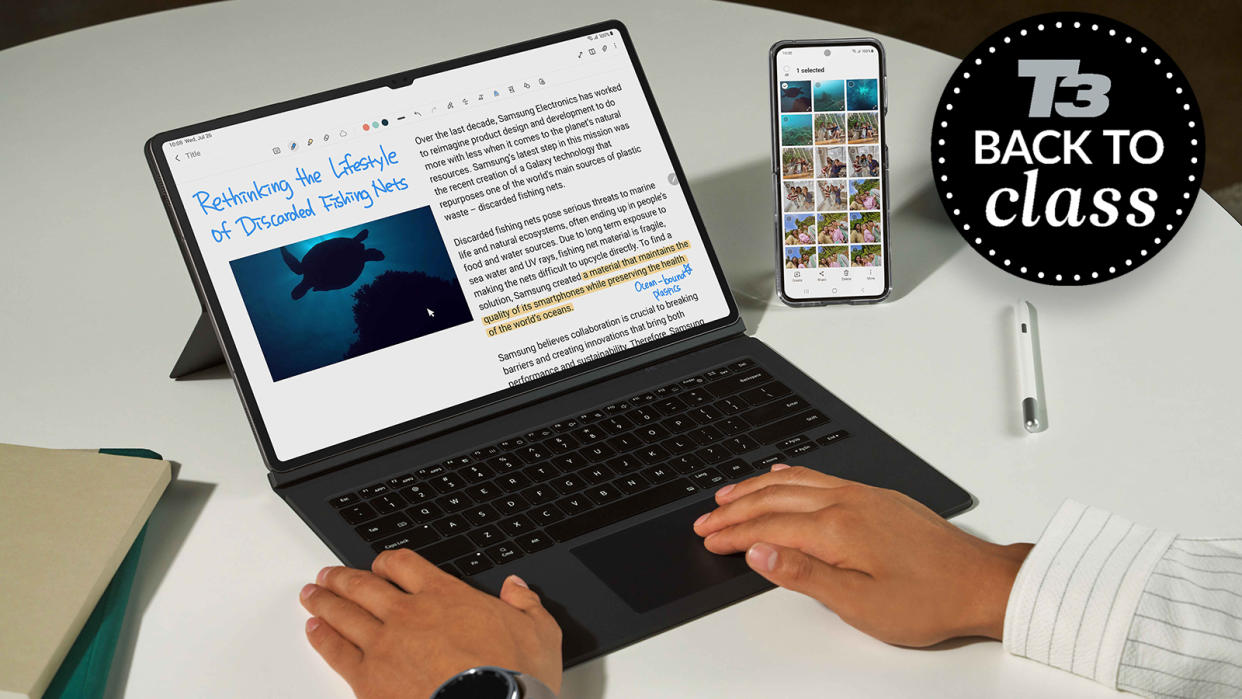
With a new academic year getting closer, T3's Back to Class month is here to bring you the very best in tech gear and buying advice ready for September. Wherever you (or your kids) are heading for 2023/2024, we want to make sure they're well-equipped for what's next.
Here we're going to look at the tablet versus laptop debate for school, college, or university. Both gadgets are suitable for study, but there are certain key reasons why you might want to invest in one of the best tablets around rather than one of the best laptops or best Chromebooks – and we'll expand on those reasons below.
While we wouldn't say choosing a tablet over a laptop is right for every single student out there – there are some great student laptop options, too, you see – it's certainly something to consider: it might be a much better fit for you (or your kids), and you could save some money along the way too.
1. Tablets are often cheaper
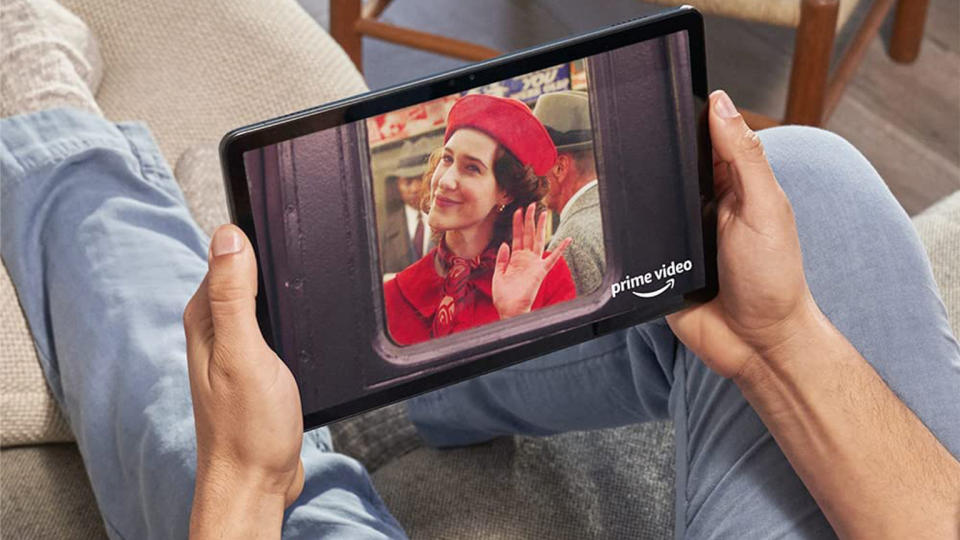
Clearly tablets like the 12.9-inch iPad Pro don't come cheap (with a starting price of £1,249/$1,099), but generally speaking you're going to get more bang from your buck with a tablet. The entry-level 10.9-inch iPad starts at £319/$329, and you'd struggle to find a decent, capable laptop for the same sort of price – even one of the best budget laptops.
Pick up an 11-inch Amazon Fire Max 11, meanwhile, and you're parting with a mere £259/$279. Of course you have the costs of adding on accessories like cases, keyboards and styluses if you're going to need them, but we reckon the deals are often good ones – especially if you can get these accessories included with the tablet as bundles.
2. Tablets are more portable

Wherever you study, chances are you're going to have to carry some stuff around – whether it's from school to home, or halls to the lecture theatre, or away on a field trip. With that in mind, tablets typically offer a much smaller, lightweight device that you can quickly slide into a backpack or even hold steady in one hand without any problem.
There is a trade-off here, which is that the screens of tablets are usually smaller and of a lower resolution – but it might be a trade-off that's worth it for what you need. If you do need to go big, consider the Samsung Galaxy Tab S9 Ultra (or the previous-gen S8 Ultra if you can get it cheaper): it offers a huge 14.6-inch AMOLED display with 2960 x 1848 resolution, while tipping the scales at just 732g.
3. Tablets are more versatile
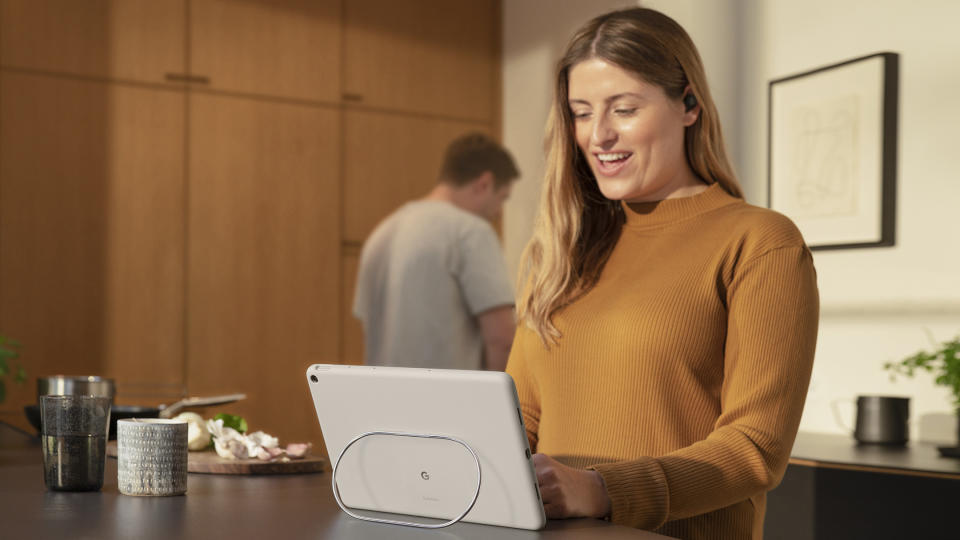
You can do more than you might think from a tablet: you can type on it, you can draw on it, you can speak into it, you can take photos with it, and you can just sit back and look at it. Pick up something like the Google Pixel Tablet, and it comes with its own magnetic charging dock – perfect for watching videos or listening to music after class has finished.
The Apple, Google and Amazon app stores come backed with useful apps for all kinds of educational and research needs, and if you're buying a tablet for younger children, then managing parental controls on these devices is straightforward too (if you decide to go for an Amazon Fire tablet, there are specific Kids Editions of them you can look out for).
4. Tablets are simpler to use
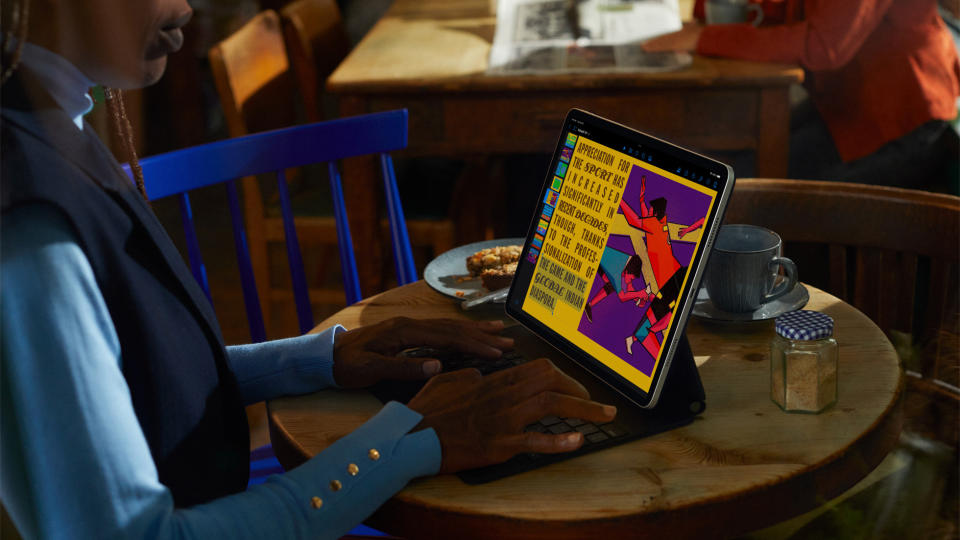
Sometimes, less is more: if you're taking notes in a lecture or trying to focus on an educational app then you don't want a dozen distractions pulling you away. While Windows and macOS are more advanced operating systems and better for multitasking overall, they also make it easier to try and do too much at once when you shouldn't be.
That said, Android and iPadOS are getting better at letting you manage multiple windows and apps alongside each other, which means you can get up a website and an essay (for example) at the same time. There's just enough flexibility to be useful, while app and operating system updates and device security are all neatly handled in the background.
5. Tablets can be laptops too
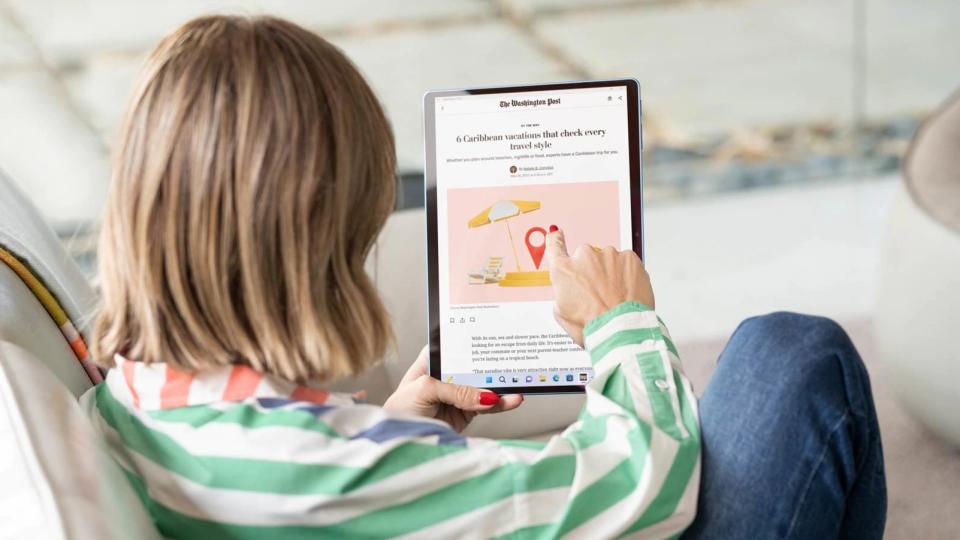
Perhaps the most compelling argument for tablets over laptops is that tablets can transform into laptops much more easily than laptops can switch into tablet mode. Take the Microsoft Surface Pro 9, which runs full-fat Windows 11: you get the portability and versatility of a tablet, combined with the power of a laptop when a keyboard is attached.
The same goes for other tablets – hook up a keyboard and suddenly you can get much more work done. Other peripherals like a mouse and a pair of headphones can also be added to these slates quite easily, which means you've got a mini productivity station when you're at your desk and a giant mobile phone when you're on the move.